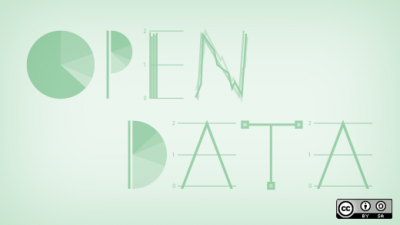The MSK Nursing staff work at different locations and it is important for them to be able to access information resources that support their daily work activities.
Recognizing the fact that nurses beyond our main campus need to have easy access to online resources from anywhere, the MSK Library offers a suite of online information resources intended for all healthcare professionals, some focusing specifically on the nursing community as the primary audience.
Below we provide an overview of select online resources and services most useful for Nurses.

ONESEARCH
ONESEARCH is the search engine built into the Library’s Website, and it allows for searching for available resources and databases. It also serves as a library catalog which allows finding print and electronic books, journals and other items. Lastly, it allows for finding journal articles available in full text via MSK Library subscriptions (as such this tool is complementary to searching bibliographic databases) as well as requesting materials outside of the library’s collection using our Document Delivery service.
LibGuides
LibGuides are customized information portals developed by the Research Informationists and there are currently six LibGuides devoted to our Nursing Community including a general one on Nursing Resources. Access to all LibGuides is from the Library Website (once on the Website, look for the header LibGuides, located at the lower left-hand side of the screen).
Databases
PubMed – USA government database of journal articles in life sciences, medicine, nursing, dentistry, veterinary science and health professions.
CINAHL – proprietary database of literature in Nursing and Allied Health (indexes journal articles, both peer reviewed and non-peer reviewed, newsletter articles, dissertations).
JBI Joanna Briggs Institute EBP Databases – smaller, curated database with evidence summaries and evidence based practice recommendations in Nursing.
Embase – a European-based proprietary database similar to PubMed in scope; unlike PubMed indexes conference abstracts in addition to full articles.
PsycINFO – Psychiatry and Psychology dedicated proprietary database.
Scopus and Web of Science – interdisciplinary science databases with an added bonus of citing the reference (times cited, etc.); unlike dedicated biomedical databases listed above which have an enhanced functionality of mapping search terms to subject headings, these two databases are searched with keywords only.
HAPI Health and Psychosocial instruments – a proprietary database which indexes literature on surveys, questionnaires and other instruments.
AMED Allied and Complementary Medicine – a proprietary database of peer reviewed and non-peer reviewed articles which focuses on alternative and complementary medicine.
All databases listed above, including PubMed, need to be accessed from the Library Website. Additional databases and web resources can be found under the Databases tab.
E-journals and Full Text
While e-journal titles can be found in OneSearch and under the eJournals tab, the best way of finding journal articles is by searching bibliographic databases.
Full Text: Getting Full Text – explains how to get the full text of articles and other MSK subscribed resources. Most of all instructions are provided on how to use ILLiad Document Delivery for items not immediately available in full text.
E-books
Textbooks and e-book collections that the MSK Library subscribes to has been previously covered in an past blog post. The ways of finding and accessing e-books have also been discussed in another past blog post.
Support materials (drug information, calculators, patient education materials, coding materials)
Support materials found on e-book platforms were covered in a past blog post.
Library Tools
The Library supports the following Citation Management programs for organizing your references and creating bibliographies:
EndNote
RefWorks
Papers3
SciWheel
Library Services for Learning and Research
Ask Us provides links to forms needed to request different types of Library reference and research assistance, e.g. literature search requests, research consultations, Chat service, etc.
Systematic Review Service explains steps in conducting a Systematic Review, lists links to select resources and provides guidance on how to seek library assistance when conducting this type of research investigation.
Learning Lab offers training opportunities, now via video conferencing tools in database (e.g. PubMed) searching, Citation Management (e.g. EndNote), evidence-based practice, etc. Check out our calendar view for upcoming workshops.
If you have any questions or want to learn more about available library services and resources, just Ask Us!
 As a result of the COVID-19 pandemic, many researchers with limited access to their laboratories have been turning to publicly available datasets with which they can run their own analysis, provide their own insights, or combine with their original research data to identify new trends. While the remote-work model creates plenty of challenges for researchers, it also presents a unique opportunity to highlight the value of data sharing on a global scale.
As a result of the COVID-19 pandemic, many researchers with limited access to their laboratories have been turning to publicly available datasets with which they can run their own analysis, provide their own insights, or combine with their original research data to identify new trends. While the remote-work model creates plenty of challenges for researchers, it also presents a unique opportunity to highlight the value of data sharing on a global scale.
